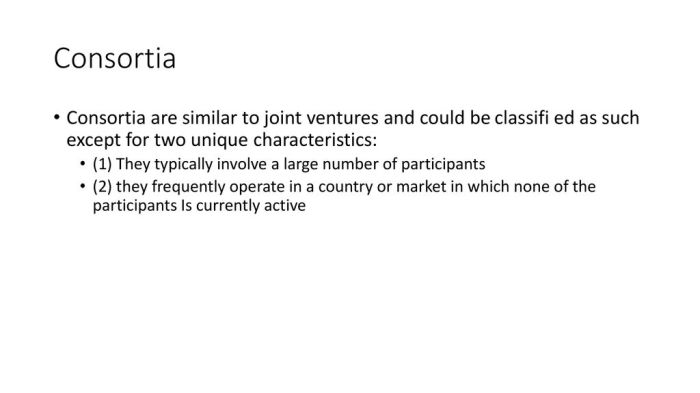Typically joint ventures involve more control and risk than franchising. This is because in a joint venture, the partners share ownership and control of the business, while in a franchise, the franchisor retains more control over the business. As a result, joint ventures can be more complex and risky than franchises.
There are a number of factors that can affect the level of control and risk in a joint venture. These factors include the size of the joint venture, the number of partners involved, the nature of the business, and the legal structure of the joint venture.
Joint Venture Control and Risk: Typically Joint Ventures Involve More Control And Risk Than Franchising

Joint ventures typically involve a higher level of control and risk than franchising. In a joint venture, two or more parties share ownership and control of a new entity. This means that each party has a say in the management and decision-making of the joint venture.
As a result, joint ventures can be more complex and difficult to manage than franchising.There are a number of factors that influence the level of control and risk in a joint venture. These include:* The number of partners involved
- The size and complexity of the joint venture
- The industry in which the joint venture operates
- The legal and regulatory environment
Risk Mitigation Strategies, Typically joint ventures involve more control and risk than franchising
There are a number of strategies that can be used to mitigate risk in joint ventures. These include:* Conducting due diligence on the other party
- Negotiating a clear and comprehensive joint venture agreement
- Establishing a joint venture board or committee to oversee the management of the joint venture
- Obtaining insurance to protect against potential risks
Key Questions Answered
What is a joint venture?
A joint venture is a business arrangement in which two or more parties share ownership and control of a business.
What is a franchise?
A franchise is a business arrangement in which a franchisor grants a franchisee the right to use its trademark, business model, and other intellectual property.
What are the advantages of a joint venture?
Joint ventures can allow businesses to share the risks and rewards of a business venture, and can also provide access to new markets and technologies.
What are the disadvantages of a joint venture?
Joint ventures can be complex and risky, and can also lead to disputes between the partners.

